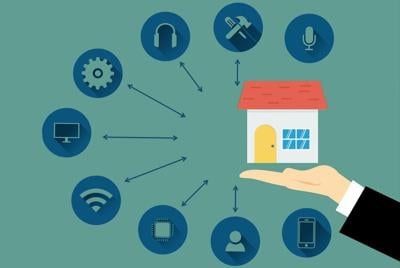
In the rapidly evolving world of technology, home automation is no longer a futuristic concept but a present-day reality. These systems, which integrate various household functions into a cohesive unit, are redefining how we interact with our living spaces. With advancements led by companies like Schneider Electric, home automation transforms homes into dynamic environments, prioritizing convenience, efficiency, and security.
Understanding Home Automation
Home automation uses smart technology and interconnected devices to automate and control various aspects of home life. This can range from lighting and heating to security and entertainment systems. Integrating IoT (Internet of Things) technology means that these systems can be controlled remotely via smartphones or other devices, offering unparalleled convenience and flexibility to homeowners.
The Convenience Factor
One of the most appealing aspects of home automation is its sheer convenience. With smart systems, mundane tasks like adjusting thermostats, turning off lights, or locking doors can be done remotely or set to occur automatically based on pre-set preferences. This not only saves time but also enhances the overall living experience.
Boosting Energy Efficiency
Home automation systems are instrumental in promoting energy efficiency. For example, smart thermostats and lighting systems can adjust based on occupancy or time of day, reducing unnecessary energy usage and cutting down on utility bills. Companies like Schneider Electric are at the forefront of this movement, providing smart home solutions that offer convenience and contribute to a more sustainable future.
Enhancing Home Security
Another significant advantage of home automation is improved security. Advanced systems can include smart locks, surveillance cameras, and alarm systems that can be monitored and controlled remotely. This gives homeowners peace of mind, knowing that their homes are secure, whether at home or away.
The Role of AI and Machine Learning
Artificial Intelligence (AI) and Machine Learning (ML) are increasingly integral to home automation systems. These technologies enable systems to learn from user behaviors and adjust settings automatically for optimized comfort and efficiency. For instance, a smart thermostat can learn a homeowner’s schedule and adjust the temperature accordingly, ensuring comfort while minimizing energy use.
Integration Challenges and Solutions
Integrating various technologies into a cohesive home automation system can be challenging despite the many benefits. Compatibility between different devices and platforms is a common issue. However, companies like Schneider Electric are addressing these challenges by developing systems compatible with a wide range of devices and standards, simplifying the integration process for homeowners.
Schneider Electric: Leading the Home Automation Revolution
Schneider Electric is a key player in the home automation industry, offering innovative solutions that embody the future of intelligent living. Their systems are designed for functionality and ease of use, ensuring that the benefits of home automation are accessible to everyone.
Embracing Interoperability and User-Friendly Design
A crucial aspect of the evolution of home automation is the focus on interoperability and user-friendly design. Future home automation systems are expected to offer seamless integration across various brands and platforms, allowing homeowners to mix and match devices and systems according to their needs. This interoperability extends beyond mere functionality; it encompasses the user experience, ensuring that these systems are intuitive and easy for everyone, regardless of their technological proficiency. This approach not only enhances the accessibility of home automation but also ensures that its benefits can be enjoyed universally, making smart homes more than just a niche market but a standard for residential living.
The Future of Home Automation
Looking forward, the potential of home automation is boundless. Integrating more advanced AI and IoT technologies will lead to even smarter homes that can anticipate and cater to the needs of their occupants. The rise of 5G technology is also expected to boost these systems' capabilities and responsiveness significantly.
Overall Conclusion
In sum, the rise of home automation systems marks a significant shift in how we perceive and interact with our living spaces. From enhanced convenience and energy efficiency to improved security and the promise of future advancements, these systems are setting a new benchmark for residential living. With companies like Schneider Electric leading the charge, the future of home automation looks bright, promising homes that are more connected and efficient and more intuitive and accessible to all. As this technology evolves, embracing these advancements will become crucial in defining the modern home.
Here are other articles related to your search:
- Mastering Smart Home Security
- Redefining Home Décor with Smart Technology
- Enhancing Luxury Homes with Electrical Solutions




(0) comments
We welcome your comments
Log In
Post a comment as Guest
Keep it Clean. Please avoid obscene, vulgar, lewd, racist or sexually-oriented language.
PLEASE TURN OFF YOUR CAPS LOCK.
Don't Threaten. Threats of harming another person will not be tolerated.
Be Truthful. Don't knowingly lie about anyone or anything.
Be Nice. No racism, sexism or any sort of -ism that is degrading to another person.
Be Proactive. Use the 'Report' link on each comment to let us know of abusive posts.
Share with Us. We'd love to hear eyewitness accounts, the history behind an article.